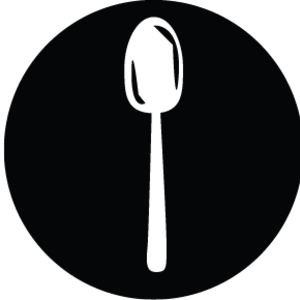Instead of people wishing me good luck in college, they told me to be aware of the freshman 15. I went from easily running half marathons in high school, to developing an eating disorder in college. I really loved working out and eating healthy- during syllabus week…Then, I got busy with clubs, endless exams, and I was never in the mood to catch a bus to the gym.
I didn’t have a scale in my dorm room, but when I came home for Christmas break, I was shocked to see that I gained more weight than I had expected! I didn’t know how to respond to this physical change. My mentality around food and exercise took a drastic detour into eating disorder territory.
I felt like I needed to eat perfectly “clean” foods and wanted nothing to do with anything processed. Some call this Orthorexia. I could easily eat black bean brownies (not a recipe I’d recommend) but wouldn’t touch real desserts. Counting calories as I ran on the treadmill was my new 6AM workout and eating salads with raw veggies and a drizzle of olive oil was my new meal. Eating out with friends was no longer fun, it was stressful. And naturally by dinner time, I’d be starving.
The Turning Point
I realized that being a Dietetics major was just feeding the problem. I changed my major to Food Industry Marketing and am now learning about the $60 billion diet industry. It’s no wonder why we struggle with body image.
Instead of working out on machines that show you every calorie burned (which isn’t even 100% accurate by the way), I go running while listening to a podcast, or I attend classes at my campus gym. Barre, pilates, and indoor cycling are my jam!
But it’s not just switching up my workout routine that helped. Here are a few steps to take in order to heal your mentality around food and get back to living your life.
1. Start Small
It’s important to start small. Recognize that you’re going to eat out with friends and the dining hall meal plan isn’t perfect. College is a new season of life. Your body will change physically, and your mind will change mentally. Allow this to happen and notice the positive parts of your life that are changing.
2. Stop depriving yourself
Did you know that over 90% of diets fail? It’s one of the best target markets advertisers aim for, because we continue to spend money on diet trends or products, and constantly fail, needing their products more and more. Sadly, they’re good at brain washing us.
The more you don’t allow yourself to eat something, the more you want it. It’s proven by science, and it’s just how our brains work (think kids on Halloween or Thanksgiving dinner). Allow yourself to eat a certain food or dessert. Eventually you won’t crave it as badly as you did before. This is called “intuitive eating,” and it’s all about eating what you crave. It’s also one of the first recommended steps when studying eating disorder recovery. Here’s what we want to avoid:
3. Talk to others who can help
I saw a psychologist and dietitian on campus, and it was practically free since I am a student. Or, you can reach out to friends or campus clubs for help. Many universities have body positive, wellness, or mental health organizations. It helps to have a support system. At the University of Georgia, we have an organization called, BeYou Peer Educators, who advocate and encourage positive body image on campus. Check out our program and see if your school offers something similar.
4. Follow people who inspire you on social media
Follow the good, unfollow the bad. Unfollow any accounts that make you feel like you need to change. Follow people that will educate and encourage you if they have experienced what you’re feeling.
Suggestions:
@Whollyhealed– Check out this gal’s page. She’s an expert on how to rediscover a healthy relationship with food (and reach that place of eating a burger while smiling, no guilt involved!)
@Mindfulcounseling– Tiffany Roe is a professional mental health therapist and runs a podcast called “Therapy Thoughts” available on iTunes. She focuses on diet culture, emotional regulation, and removing the negative stigma of mental health. Also, her style rocks.
@OwnItBabe– I recently discovered Rini, and she is currently running a hashtag, #normalizeallbellies, and is receiving amazing amounts of support. She also talks a lot about social media standards compared to real life.
If you’re still interested in learning more (either for yourself or even to help out a friend), the National Eating Disorder Association has great resources! Remember, your feelings are valid and this is a journey. Just because something is normal in society, like dieting, does not always make it right. Take charge of your own mindset and be apart of this change. #ditchdietculture.


